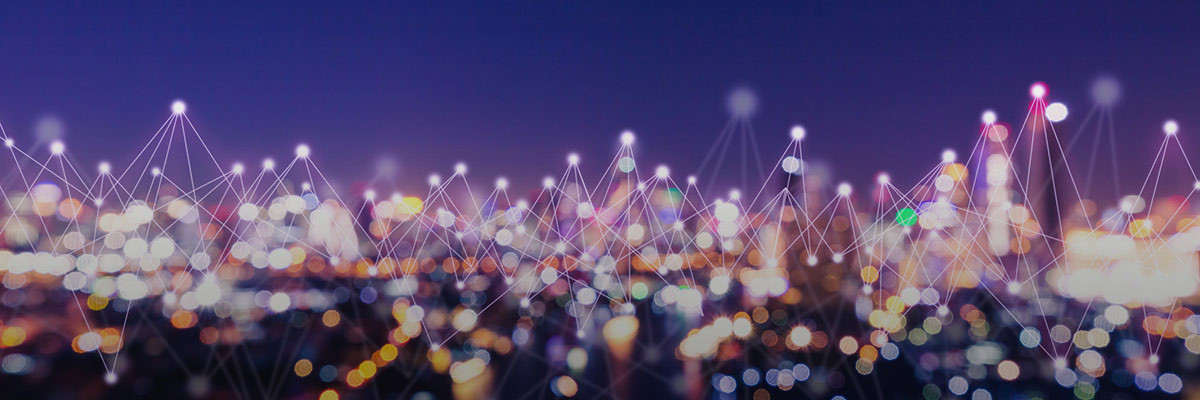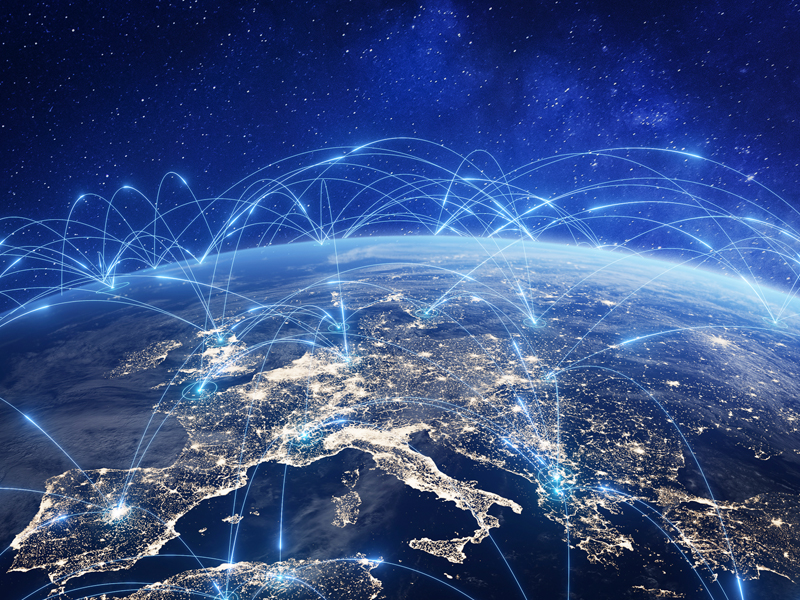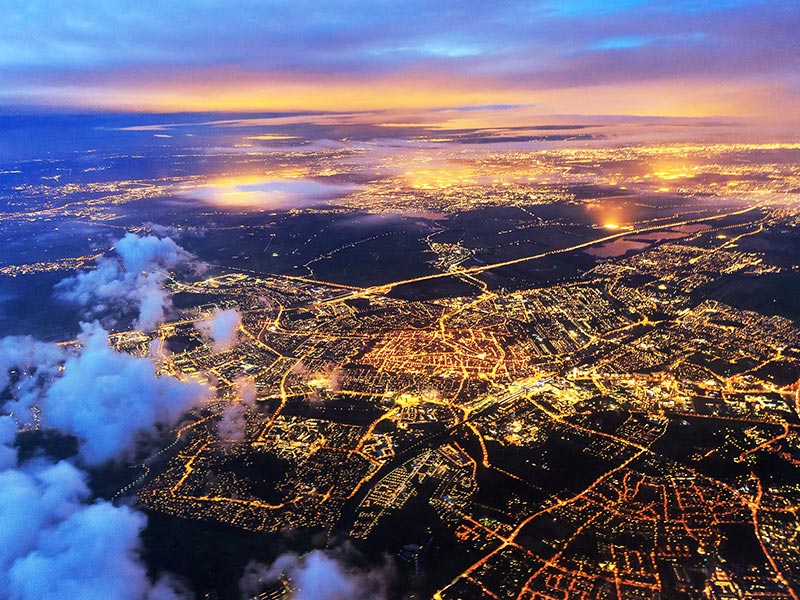
Authors
-
Charlotte Bancilhon
Former Director, Sustainability Management, BSR
BSR has partnered with Polecat since 2017 to deliver real-time corporate reputation and ESG intelligence from global online and social media discourse.
Yasmin Crowther, Polecat's VP of Strategic Insight, collaborated with Charlotte Bancilhon, Associate Director, BSR, to analyze the top ESG Issues and Sectors arising in global discourse about COVID-19 over the last fortnight. This blog post draws on the key findings:
- Procurement of medical supplies is the top online media topic, followed by concern for impacted workforces and labor practices. Public opinion on social media indicates high expectations of businesses to play a positive role in the COVID-19 response, including to protect employees, provide fair benefits, and pay taxes.
- Social media is also focused on potential healthcare solutions, but pays acute attention to issues of diversity and inclusion, with strong responses to the stigmatization of ethnic minorities and characterization of COVID-19 as "the Chinese virus."
- The industrial sector receives most online scrutiny for the economic impacts of COVID-19 as well as for the ways in which business models are pivoting to provide solutions. Firms across sectors are making investments to support communities—from access to IT to ensuring food security and emergency relief.
- Conversations about climate change have not been hampered by COVID-19 but reframed. The depth and scale of the current pandemic is being compared to the climate crisis, with a renewed focus on building resilient communities and businesses.
- There is a new focus on biodiversity with growing attention to how wildlife carries infectious diseases and the risks of destroying natural habitats which force animals into ever closer proximity with humans.

Coronavirus coverage across leading ESG Topics and Sectors for the two weeks to 8 March 2020
The main headline in the Financial Times this weekend read: "Global economy set for sharpest reversal since Great Depression." Although businesses are not all equal in face of the crisis, it is clear from our review of online and social media discourse that businesses are being scrutinized for how they are considering the welfare of their employees, communities, and partners before profits. A recent survey found that 90 percent of respondents expect businesses to partner with governments and relief agencies to address challenges, while long-standing debates on climate and stakeholder capitalism are being powerfully reframed. There is an unprecedented opportunity for businesses to show leadership and purpose:
Response to Medical Imperatives
We are glimpsing what is possible when urgent social need comes first—when the imperatives are the procurement of ventilators, face masks, vaccines, and testing kits. Around the world, auto manufacturers like Ford, GM, Fiat, and Nissan are collaborating with healthcare specialists to deliver tens of thousands of medical ventilators in a matter of months. The pharma sector is investing billions to co-fund vaccine research and clinical testing, and some of the world’s best-known beauty brands and beverage companies, like Estee Lauder, LVMH, L’Oréal, and Pernod Ricard, are turning their facilities to the production of hand sanitizer for frontline medical staff. Meanwhile, the fashion industry, from luxury brands to small- and medium-sized enterprises (SMEs), are making facemasks, and household names like Unilever are donating hundreds of millions of dollars of soap, sanitizer, bleach, and food to support health organizations globally.
Support for Communities
After the medical imperatives, come the community concerns of ensuring care for vulnerable people in their homes; that we all have enough food and that we have the digital infrastructure – the networks, connectivity and data—vital to working from home and maintaining contact with family and friends whom we may not see for months. Food companies like Mondelez are donating tens of millions in financial aid and in-kind support to community partners advancing critical food stability and emergency relief. Retailers are setting aside dedicated time every day for the elderly to shop and providing free home deliveries for the most vulnerable. Tech companies are lifting data caps and promising not to cut off supplies if payments are overdue or missed.
Flexible work forces
At the same time as businesses strive to pivot to the realities of a world in lockdown, the longer-term consequences will reshape work life within many sectors. Employees around the world are being asked to adapt to working from home or being furloughed. A recent ILO report found that more than 4 out of 5 people (81 percent) in the global workforce of 3.3 billion are currently affected by full or partial workplace closures. But while some sectors, such as airlines, are registering massive layoffs, others, such as retail, are hiring. Around 40 percent of the world’s passenger jet fleet is now in storage, with firms like Air New Zealand reporting an expected contraction of at least 30 percent over the next year, as its revenue falls from just under US$6bn to US$500m. In the U.K., laid-off airline cabin crew with first aid training are being pursued by the NHS to work in support of nurses and doctors in hospitals across the country. It is hard not to wonder if the experience will compel a permanent change in career as the perceived value of frontline workers is set to soar, with UK political conversation on the need for better pay already igniting. Meanwhile in the U.S., the reduction in emergency departments and routine hospital programs to cope with COVID-19 means some frontline staff are actually getting pay cuts.
Science at the Center
Perhaps most powerfully, coronavirus has put expert opinion and scientific fact center stage. We do not want or need the opinion of literati—we care mainly for the epidemiologists, virologists, and medics who tell it as it is. Twitter has redefined its definition of harm to address content that "goes directly against guidance from authoritative sources of global and local public health information" and is removing tweets that spread dangerous misinformation about COVID-19. Facebook is investing an additional US$100 million in local journalism to support reporting on the pandemic.
Climate Change at the Fore
There is much that is positive, but what does it all bode for how we think about the future more widely? Many articles use the lens of climate change to consider future possibilities—balancing the immediate enforced environmental benefits of cleaner air and birdsong with longer-term choices. As The New York Times writes:
The efforts to revive economic activity — the stimulus plans, bailouts and back-to-work programs being developed now — will help determine the shape of our economies and our lives for the foreseeable future, and they will have effects on carbon emissions that reverberate across the planet for thousands of years.
In an interview with New Scientist, Greta Thunberg said:
If one virus can wipe out the entire economy in a matter of weeks and shut down societies, then that is proof that our societies are not very resilient. It also shows that once we are in an emergency, we can act and we can change our behaviour very quickly.
Reframing of Biodiversity and Disease
Conversations about climate change and biodiversity haven’t been killed by COVID-19, but they are being reframed. Tigers with COVID-19 make the front page, along with wide-ranging discourse about potential threats to and from other animals. Inger Andersen, head of the UN Environment Programme, has cautioned on the proximity of wild animals to humans as a cause of disease—with 75 percent of all emerging infectious diseases coming from wildlife. Her message is that failing to look after the planet is a failure to look after ourselves: global warming and the destruction of habitats for farming, mining and housing all drive wildlife into contact with people in ways that increase risk of cross-infection. Aaron Bernstein of the Harvard School of Public Health has said:
The separation of health and environmental policy is a dangerous delusion. Our health entirely depends on the climate and the other organisms we share the planet with.
The emerging imperative is for more joined-up thinking and fewer artificial silos, for business strategies to go beyond just cutting greenhouse gas (GHG) emissions to the delivery of resilience in the face of a global crisis.
The Battle for Hearts and Minds
The political message to societies in lockdown is that we are "all in it together"—that our individual sacrifices are essential for the greater good and to safeguard the vulnerable. On social media, there are strong reactions to behaviors that undermine diversity and inclusion, particularly when it comes to stigmatizing minorities and characterising COVID-19 as "the Chinese virus." Online, the emphasis is largely that "we are all in it together." We are, but there is also an abyss being observed between the experiences of haves and have-nots. Social isolation in a roomy home with a garden is very different from lockdown in a high-rise block, let alone the difference between established and emerging economies. COVID-19 is shining an unforgiving light on how we are all the same and also how lives are so different and that we turn our backs on one another at our collective peril.
Our Post-COVID-19 World
The tension that seems to be strongly in play when it comes to imagining a world after COVID-19 is whether the impetus to collaborate and put science and society first endures or whether more protectionist and nationalist policies assert themselves. Conversations to build back better are emerging, as demonstrated by the group of French parliamentarians who have launched a national consultation to prepare “the day and the world after” COVID-19 under the hashtag #LeJourdAprès, in reference to the Hollywood hit The Day After Tomorrow. BSR is inviting member companies to engage in thinking ahead to build a different future.
Already, multiple corporate conversations are trying to scope the future landscape, with speculation that flexible working and reliance on digitization will not spring back to the status quo—that the future has somehow been rapidly accelerated—and that new priority and investment will need to go towards ensuring more inclusive and resilient economic strategies if we are not to bear the cost of more damaged societies.
As Arundhati Roy wrote in the Financial Times over the weekend:
The Pandemic is a portal. We can choose to walk through it with our dead ideas. Or we can walk lightly, ready to imagine another world.
This blog was written and produced in collaboration between Polecat and BSR.
Topics
Let’s talk about how BSR can help you to transform your business and achieve your sustainability goals.







